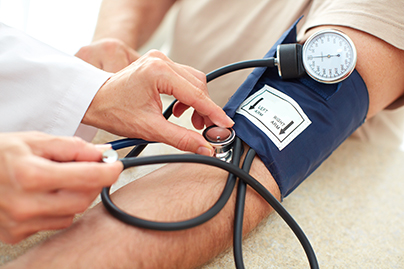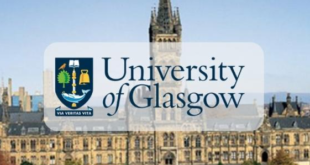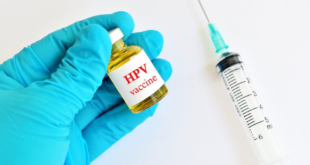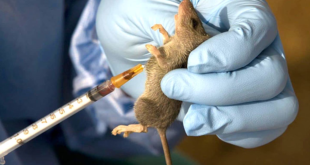How to Lower Blood Pressure
High blood pressure is also known as hypertension. This remains is a major risk for heart disease and stroke which are among the leading causes of death especially amongst the aged worldwide. The fact that hypertension usually has no symptoms has earned it the nickname “silent killer” in many quarters. The unit for blood pressure measurement is millimeters of mercury often abbreviated as mm Hg. This measurement often involves a numerator and a denominator. The top number stands for the systolic blood pressure while the bottom number represents the diastolic blood pressure. Usually, blood pressure lower than 120/80 mm Hg is considered normal while a blood pressure higher than 130/80 mm Hg or more is considered high. The good news however is that lifestyle changes can help us lower our blood pressure significantly. Some of the best ways to lower our blood pressure includes:
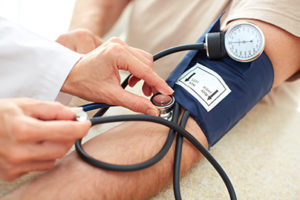
1. Get good and restful sleep
During sleep our blood pressure typically drops down. Hence, not sleeping well can affect our blood pressure. He who is experiencing sleep deprivation runs a risk of high blood pressure especially at middle-age. If you find it difficult to sleep, try some of the following tips: exercise during the day, avoid naps during daytime, have a regular sleep schedule, spend time relaxing at night. Sleeping just 5 hours or less a night has been increasingly linked to a significant risk of hypertension.
2. Reduce intake of sugar and refined carbohydrates
Reducing sugar and refined carbohydrates intake helps in weight loss which in turn lowers our risk of high blood pressure. By-and-large, a low carbohydrate diet is more effective in reducing body weight than a low fat diet. Hence reducing sugar and refined carbohydrates intake is the way to go.
3. Exercise regularly
Sedentary life puts us at risk for high blood pressure. Aerobic exercise training can lower blood pressure in older adults. Infact, exercise and increase in body activities brings the same result as many blood pressure medications. Regular increase of our heart and breathing rates will over time make our heart stronger. A stronger heart pumps more effortlessly with less pressure on our arteries and lowers our blood pressure. A minimum of 30 minutes a day or at least 3 times a week can help us enjoy these benefits. Doing any physical activity is better than doing none.
4. Loose excess body weight
Increase in body weight often leads to an increase in blood pressure. Being overweight also can cause disruption of breathing. This can further raise our blood pressure. Therefore one of the lifestyle changes that can significantly control blood pressure is weight loss. Generally, with every 1 kg of weight lost (i.e about 2.2 pounds), one can reduce his/her blood pressure by 1 mm Hg. Our waistline can also be an indicator for a risk of high blood pressure. Carrying too much weight around our waist can put us at greater risk of high blood pressure. Generally, waist measurement of greater than 40 inches (102 cm) for men and 35 inches (89 cm) for women puts us at risk for high blood pressure.
5. Consume more potassium and less sodium
Increasing potassium intake helps lower blood pressure by easing tension in the blood vessels. Potassium also helps neutralize excess sodium (salt) in the body system. However, individuals with kidney disease should talk to their doctor before increasing their potassium intake. The following steps can decrease sodium in our diet: eat fewer processed foods and less red meat, don’t add salt to foods, buy food and beverages that have low-sodium alternatives in their label. To increase potassium here are some tips: eat beans, fish, fruits such as bananas, oranges, avocados. Eating of vegetables such as spinach, tomatoes and potatoes are also recommended. Finally low-fat diary foods such as milk and yogurt are also very helpful.
6. Reduce alcohol intake
Too much of alcohol is not good for the body. If you must drink, reduce your intake to once in a while and in small amount. Moderate alcohol intake is defined as the drinking of not more than one bottle in a day. Actually, drinking alcohol only in moderation may lower our blood pressure. However, when alcohol is consumed too much the reverse becomes the case. More still, too much intake of alcohol can also reduce the effectiveness of blood pressure medications.
7. Stop smoking
Immediately after smoking, blood pressure and heart rate are increased. On the long run, the chemicals in tobacco can also damage the walls of the blood vessel, causing inflammation, and narrowing the arteries. This chain of events will also lead to increase in blood pressure. Quitting smoking can help restore blood pressure to normal. Apart from reducing our risk of heart disease stopping smoking has positive impacts on our overall health.
8. Reduce excessive stress
Yes, life comes with so much stress. Ranging from family, workplace, business and societal demands. It is therefore important to device means of reducing these stress for the sake of our blood pressure and our overall health. Some of the things that can help us relieve stress depending on the individual includes: reading books, watching comedies, taking a walk, hanging out, listening to music, etc.
9. Eat less processed food
Actually, most of the extra salt in our diet comes from processed foods and also food from eateries. Some of the items that are usually high in salt are pizza, chips, lunch meats, canned soup and other processed snacks. Usually, foods with low-fat label are high in salt and sugar to compensate for the absence of fat. Fat is what makes food tasty and also gives satiety. Reducing or even avoiding processed food completely will help us eat less sugar, less salt, and fewer refined carbohydrates. All of this can result in lowered blood pressure.
10. Monitor your blood pressure at home and see your doctor regularly
Monitoring of blood pressure at home gives us control over the situation. For instance, it will also enable us to monitor progress of the above discussed life style changes. In case of any increase it will also enable us alert our doctor of potential health complications. Blood pressure monitors are widely available. Visiting your doctor from time to time is also a key to controlling your blood pressure.
Conclusion
To reduce our blood pressure naturally, the following will help: Get good and restful sleep, reduce intake of sugar and refined carbohydrates and exercise regularly. Other tips includes: loose excess body weight, consume more potassium and less sodium, reduce alcohol intake, stop smoking, reduce excessive stress and eat less processed food. Finally, monitor your blood pressure at home and see your doctor regularly.
Wishing you a healthy and fulfilled life!
 Healthveli
Healthveli
